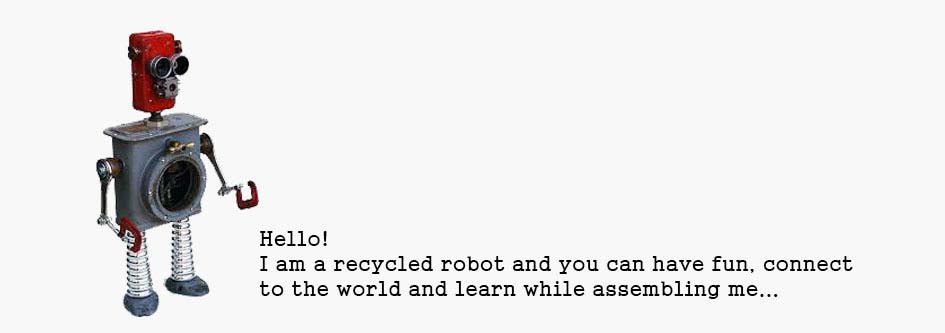

Children are natural adapters of new technologies. Nowadays is not rare to see a 2 year old playing with an ipad or young kids interacting on skype. Technology is a strong instrument for communication but it also consitutes a powerful tool for learning.
However, not everybody has access to it. In developing countries like mine [ México ] 15% of children do not have access to education and 18 million live in poverty. While internet and technology improve the knowledge, capacities and communication skills of thousand of kids around the world, the lack of it is leaving the rest of them behind, making the gap between rich and poor even wider.
Therefore, the aim of my project is to focus on how we can use technology and its processes as a powerful learning/social tool and make it available where now it's out of reach.
To create a non-expensive ludic tool that:
1.Puts kids in touch with the basics of technology
2.Introduces children to electronics and programming
3.Helps them to self-develop skills such as:
Creativity
Critical Thinking
Curiosity
Understanding of the context
Team work
Communication
Sense of Belonging to a community
Reference [and inspiration]:
Kevin Dow from Sierra Leona
This project is directed to:
8 and more years old kids
No matter what their grade of scholarship is [illitarate or assisting to school]
No matter what area they live in [rural or urban]
No matter what language or dialect they speak
In order to have a starting point, I am focusing in children from rural areas of the south of Mexico that speak different dialects and have little or no contact with technology
Taking into account the requirements or conditions of these kids, I established some guidelines that are going to define the project:
01 The cost of the project has to be non-expensive to reach the most kids possible.
02 The language of the project will be iconographic for all the children to understand easily
03 The dynamic of the project will be
- Ludic [to learn and play]
- Self-learning [logical and experimental]
- Gradual Learning [from simple to complex]
This project will not teach the children how to make certain products but will provide them with ideas and knowledge about how to make things through electronics, mechanics and programming. It is based in the development of the cognitive process of learning with the intention of giving the kids hints of what they can achieve.


References:
Little Bits , Cubelets and Atoms




There are lots of work to do and little time. This is the schedule I'll try to follow:
Week 01 [28th April to 03rd May]: Design and prototyping of electronic modules and joints
Week 02 [05th to 10th May]: Prototyping of electronic modules and joints
Week 03 [12th to 17th May]: Design and prototyping of the Physical Programming Interfase
Week 04 [19th to 24th May]: Design and prototyping of the Physical Programming Interfase
Week 05 [26th to 31th May]: Design and prototyping of the Physical Programming Interfase
Week 06 [02nd to 04th June]: Final Presentation
